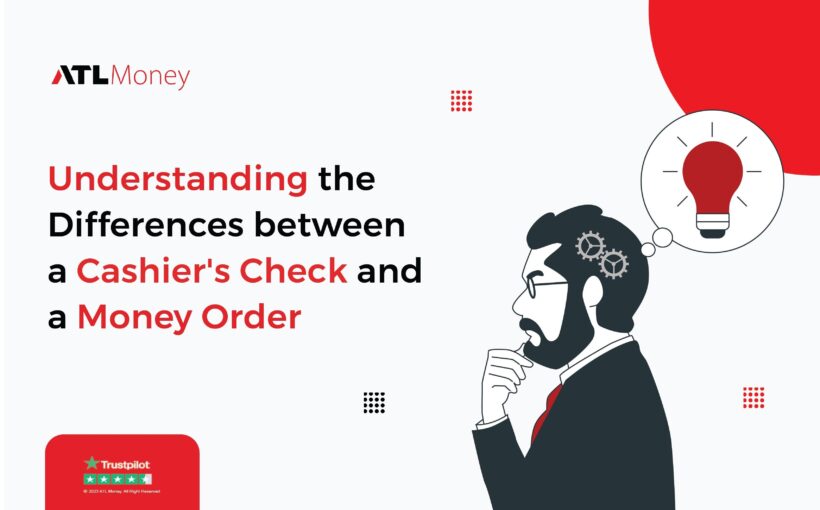We know that regarding financial transactions, cashier’s checks and money orders are two common instruments used for sending and receiving funds. While both offer a secure way of transferring money, they have distinct characteristics and specific purposes.
Let’s look into the differences between a cashier’s check and a money order, helping you navigate the complexities and choose the right instrument for your financial needs. By the end of this post, you will have a clear understanding of these two payment options, thereby aiding you in making informed decisions.
1. Definition and Issuer:
A cashier’s check is a type of payment instrument issued by a bank or a credit union. It guarantees funds from the bank’s own account, making it a reliable and secure form of payment.
On the other hand, a money order is issued by a third party, such as a post office or a financial institution. Unlike a cashier’s check, a money order doesn’t draw funds directly from the issuer’s account. Instead, you have to repay the amount when purchasing a money order.
The main difference between a cashier’s check and a money order lies in their issuer – a bank issues cashier’s checks, while third-party entities issue money orders.
2. Payment Limits and Costs:
When it comes to payment limits, a cashier’s check tends to have higher limits compared to a money order. This makes cashier’s checks a preferred option for larger transactions, such as purchasing a car or a property. However, note that banks may have their own policies regarding the maximum amount for a cashier’s check. On the other hand, money orders typically have lower limits, making them suitable for smaller transactions.
Cashier’s checks generally have higher payment limits compared to money orders, making them ideal for larger transactions.
In terms of costs, both cashier’s checks and money orders involve fees. Banks may charge a flat fee for issuing a cashier’s check, usually depending on the account relationship or the amount involved. Money orders also come with fees, which can vary depending on the issuer. It’s essential to inquire about the fees associated with each instrument before making a decision.
Both cashier’s checks and money orders involve fees, and it’s important to consider the associated costs for each.
3. Payment Method:
Cashier’s checks and money orders have different payment methods. With a cashier’s check, the recipient can either deposit it into their bank account or present it for cashing. Once the check clears, the funds become available to the recipient. On the other hand, money orders are generally treated as cash. The recipient can either deposit it into their bank account or cash it at various locations, such as banks, post offices, or retail stores.
Cashier’s checks can be deposited into a bank account or cashed, while money orders are generally treated as cash and can be deposited or cashed at designated locations.
4. Acceptance and Accessibility:
Cashier’s checks are widely accepted and recognized by most banks and institutions. They are considered a reputable form of payment and are often required in certain financial transactions. Money orders, although also widely accepted, may have limitations depending on the institution or individual accepting them. It’s advisable to inquire about the acceptability of money orders before relying on them for your transactions.
Cashier’s checks are widely accepted, making them a reputable payment option, while the acceptability of money orders may vary.
Understanding the differences between a cashier’s check and a money order is essential for making informed financial decisions. While both offer secure ways to transfer funds, their issuer, payment limits, costs, payment methods, and acceptability vary. Consider your specific needs and the transaction at hand when choosing between these two instruments.
Remember, when it comes to seamless money transfers, you can trust ATLMoney to provide reliable and efficient services. Send money anywhere seamlessly with ATLMoney and experience a hassle-free financial journey.
